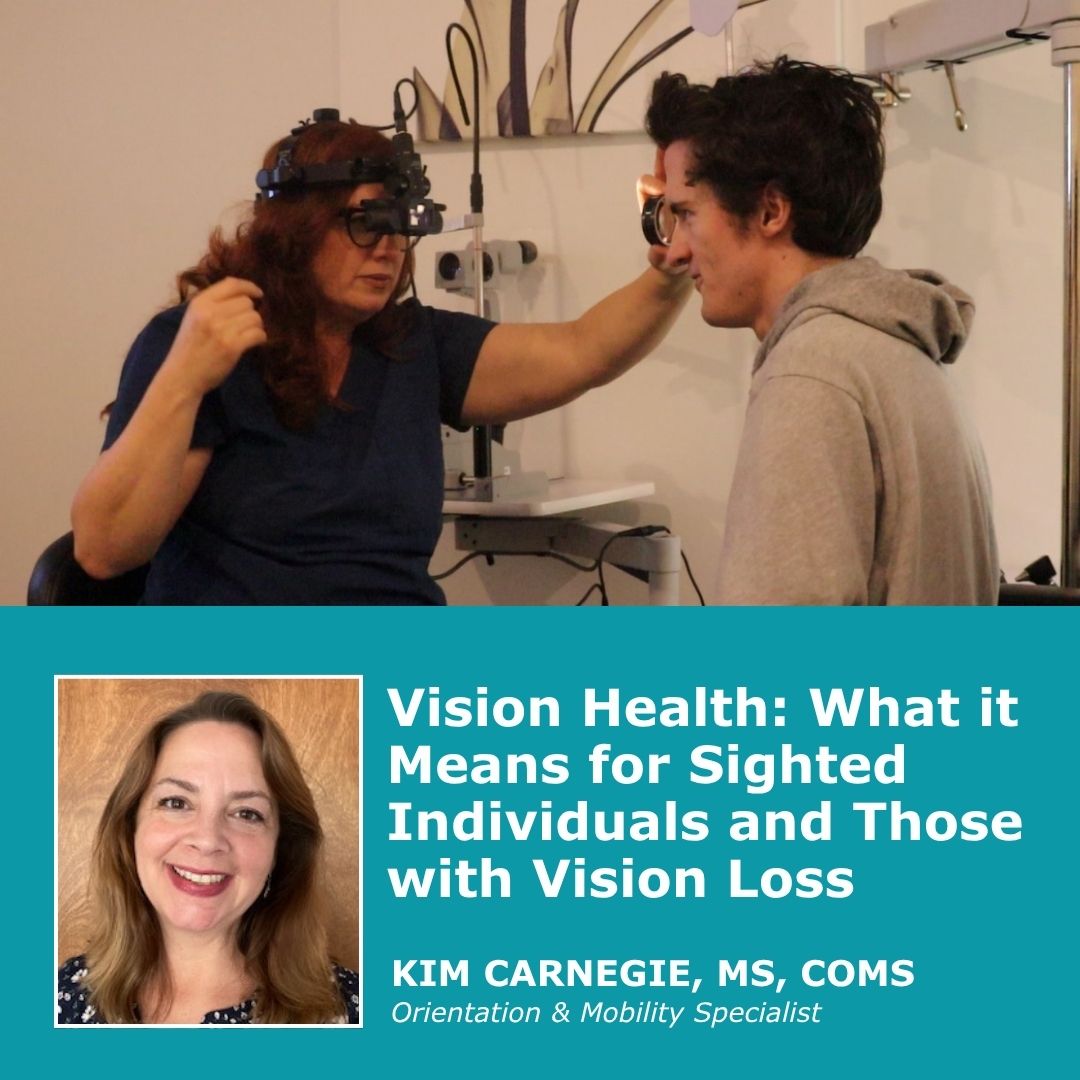
May is Vision Health Month, and all of us at Future In Sight are huge proponents of maintaining positive habits and attitudes around vision. Vision health can mean different things to different people. For example, some people with low vision require monthly injections to treat an eye condition like macular degeneration or daily prescription eye drops for glaucoma, while others can maintain their eye health through annual eye exams. It is important to remember that any changes in vision should be reported to your eye doctor as soon as possible. According to the National Eye Institute, there are eight actions you can take to maintain your vision health:
- Find an eye doctor you trust.
- Ask how often you need a dilated eye exam.
- Add more movement to your day.
- Get your family talking about eye health history.
- Step up your eating healthy game.
- Make a habit of wearing sunglasses, even on cloudy days.
- Stay on top of long-term health conditions like diabetes and high blood pressure.
- If you smoke, make a quit plan.
As an Orientation and Mobility Specialist, I help to increase movement through training that supports more independent travel for people living with low vision or blindness. After working with people who want to maintain their independence after vision loss, I have learned that daily walks are a huge boost for the heart and mind. The use of a long (or white) cane while navigating provides important tactile and auditory feedback that allows a person to get a better sense of his/her surroundings and detect obstacles. Many people I have worked with report with delight how much they appreciate the long cane when they realize they can move forward more confidently and with improved posture.
Vision loss may be an unavoidable outcome for some people due to a variety of genetic conditions or other accidental trauma. Adopting a healthy attitude towards adjustment to low vision or blindness requires time, education and support. The staff at Future In Sight are devoted to promoting inclusion and ensuring that all people are treated with dignity and respect. By providing education and highlighting the success stories of people living with vision loss, we can dispel the myths and negative stereotypes associated with vision loss.
Taking care of yourself includes taking care of your vision. Make sure to get regular eye exams and keep moving!
If you or someone you love is experiencing vision loss and could benefit from our services, please contact Future In Sight at [email protected] or 603-224-4039 today!
About the Author: Kim Carnegie, MS, COMS is an Orientation & Mobility Specialist at Future In Sight

